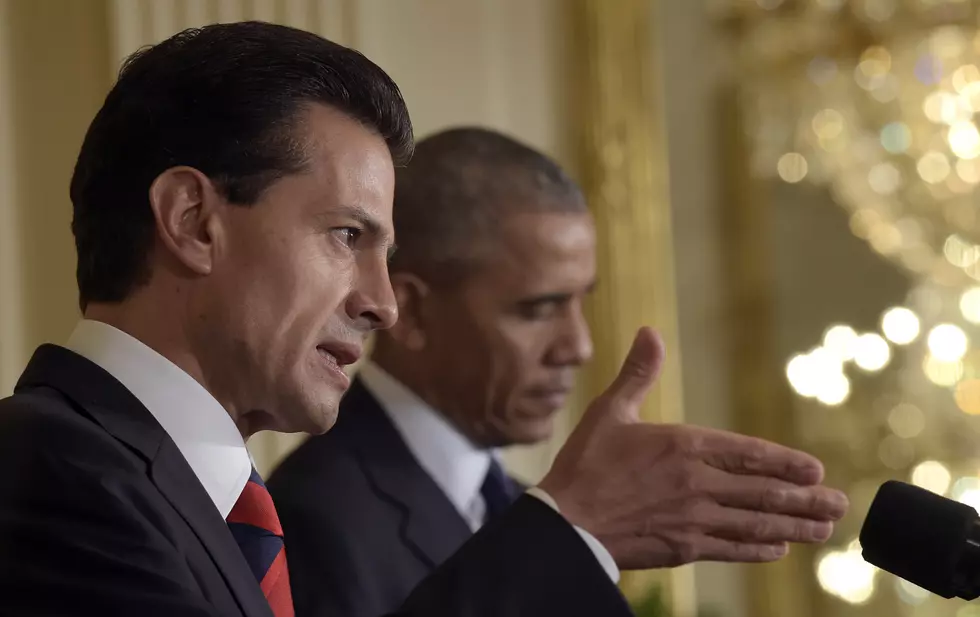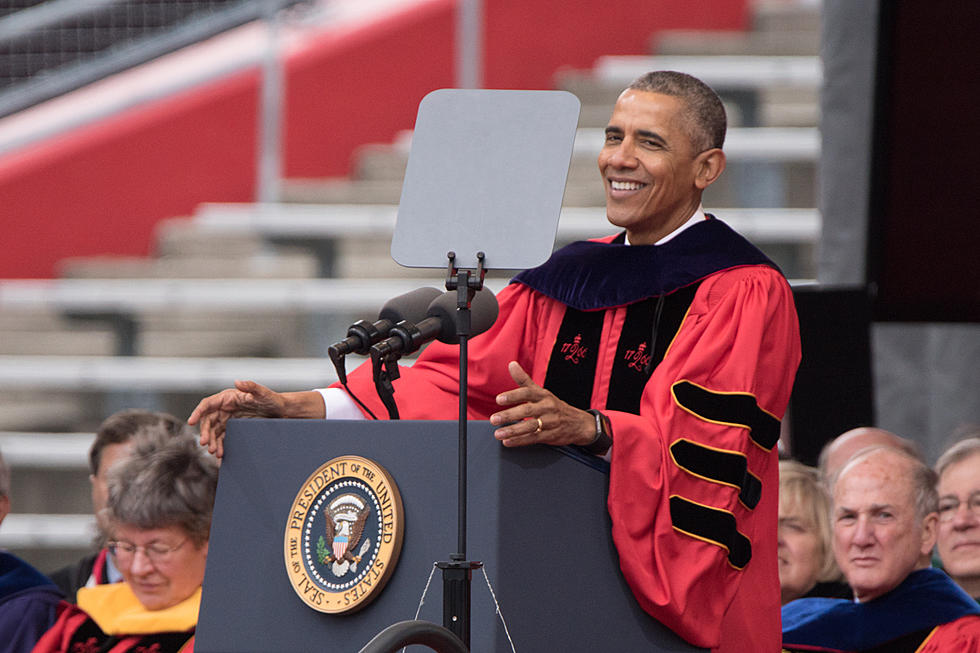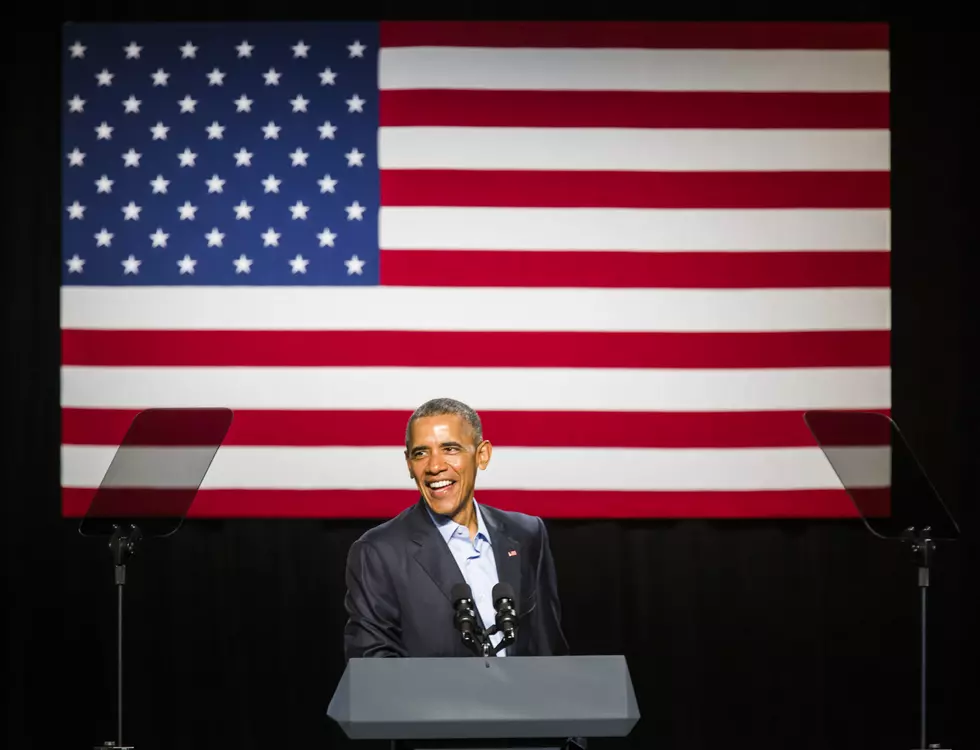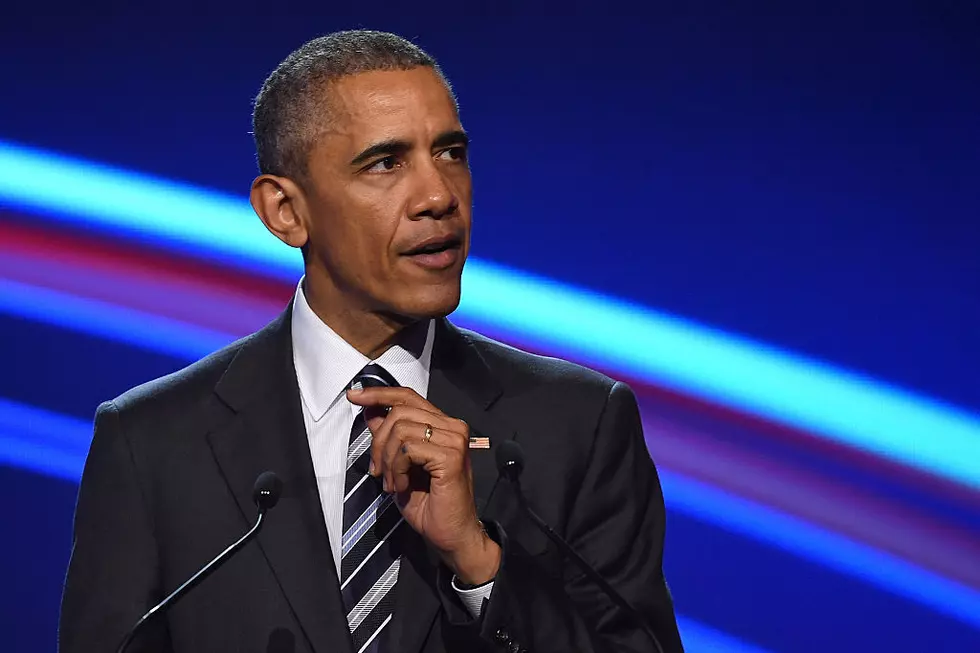
Obama proposing $478 billion public works program in budget
WASHINGTON (AP) -- The $4 trillion budget that President Barack Obama sends Congress on Monday proposes higher taxes on wealthier Americans and corporations, and an ambitious $478 billion public works program for highway, bridge and transit upgrades.
The grab-bag of proposals, many recycled from past Obama budgets, already is generating fierce objections from Republicans, who control both chambers of Congress for the first time in his presidency. They will move ahead on their own, mindful they eventually must strike a deal with Obama, whose signature is needed for the budget to become law.
The spending blueprint for the 2016 budget year that begins Oct. 1 emphasizes the same themes as Obama's State of the Union address last month, when he challenged Congress to work with him on narrowing the income gap between the very wealthy and everyone else.
In documents obtained by The Associated Press, Obama lays out the country's first $4 trillion budget - $3.999 trillion before rounding - with proposed spending supported by $3.5 trillion in revenues.
The projected budget deficit would be $474 billion, slightly higher than the $467 billion forecast by the Congressional Budget Office for 2016. For the budget year that ended Sept. 30, the actual deficit was $483 billion. That was a marked improvement from the $1 trillion-plus deficits during Obama's first years in office, when the country was struggling to emerge from a deep recession.
The CBO sees the deficits rising for the rest of the decade, once again topping $1 trillion by 2025 as spending surges in the government's big benefit programs with the retirement of millions of baby boomers.
Obama's budget does not make major changes in politically popular programs such as Social Security and Medicare. Republicans are promising action in their budget plans.
Obama's six-year $478 billion public works program would provide upgrades for the nation's highways, bridges and transit systems, in an effort to tap into bipartisan support for spending on badly needed repairs.
Half of that money would come from a one-time mandatory tax on profits that U.S. companies have amassed overseas, according to White House officials who spoke on condition of anonymity before the budget was released.
The tax on accumulated foreign profits would be set at 14 percent, significantly lower than the current top corporate rate of 35 percent.
The administration wants to overhaul corporate taxes by ending certain tax breaks and lowering rates, a challenging task that Obama and Republican leaders insist they are ready to tackle.
Higher taxes on the wealthy and on fees paid by the largest financial institutions would help raise $320 billion for low- and middle-income tax credits. Obama also is calling for a $60 billion program for free community college for qualified students and an $80 billion child care initiative.
"What I think the president is trying to do here is to, again, exploit envy economics," said Rep. Paul Ryan, the new chairman of the tax-writing Ways and Means Committee. "This top-down redistribution doesn't work."
But Ryan, R-Wis., also told NBC's "Meet the Press" that he was willing "to work with this administration to see if we can find common ground on certain aspects of tax reform."
The White House believes it has some leverage on taxing foreign earnings by linking the revenue to construction projects that potentially could benefit the states and districts of virtually every member of Congress.
The administration's budget last year proposed a smaller four-year bridge and highway fund, relying on taxing accumulated foreign earnings, but without specifying a formula.
This time, the budget will call for a one-time 14 percent mandatory tax on the up to $2 trillion in estimated U.S. corporate earnings that have accumulated overseas. That would generate about $238 billion, by White House calculations. The remaining $240 billion would come from the federal Highway Trust Fund, which is financed with a gasoline tax.
At issue is how to get companies to bring back some of their foreign earnings to invest in the United States.
The current 35 percent top tax rate for corporations in the United States, the highest among major economies, serves as a disincentive. Many U.S. companies with overseas holdings simply keep their foreign earnings abroad and avoid the U.S. tax.
Under Obama's plan, the top corporate tax rate for U.S. earnings would drop to 28 percent. Foreign profits would be taxed at 19 percent, with companies getting a credit for foreign taxes paid.
Obama's budget will propose easing painful, automatic cuts to the Pentagon and domestic agencies with a 7 percent increase in annual appropriations. For 2016, he wants a $38 billion increase for the Pentagon; many Republicans support that.
But his demand for a nearly equal amount for domestic programs sets up a showdown that may not be resolved until late in the year.
Another centerpiece of the president's tax proposal is an increase in the capital gains rate on couples making more than $500,000 per year. The rate would climb from 23.8 percent to 28 percent.
Obama wants to require estates to pay capital gains taxes on securities at the time they are inherited. He also is trying to impose a 0.07 percent fee on the roughly 100 U.S. financial companies with assets of more than $50 billion.
Obama would take the $320 billion that those tax increases would generate over 10 years and funnel them into middle-class tax breaks. His ideas: a credit of up to $500 for two-income families, a boost in the child care tax credit to up to $3,000 per child under age 5, and overhauling breaks that help pay for college.
Altogether, the White House calculates that Obama's tax increases and spending cuts would cut the deficit by about $1.8 trillion over the next decade, according to people briefed on the basics of the plan.
The tax increases, especially the increase on capital gains, bring in far more over the longer term, helping the White House claim it would stabilize the debt in relation to the size of the economy for 25 years.
More From New Jersey 101.5 FM









